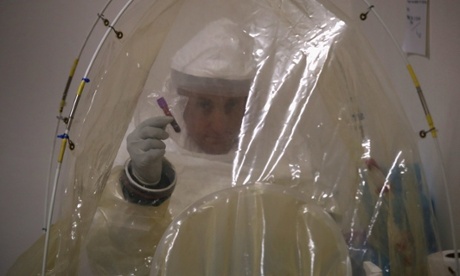Peter Dutton moves to allay fears as nurse is tested for virus and MP Bob Katter attacks quarantine arrangements

The Australian federal health minister, Peter Dutton, insists that talking to people arriving from Ebola-hit countries is the best screening method for the deadly disease at the moment.
He moved to allay fears as a Cairns nurse was being tested for Ebola virus after travelling to Africa to help treat people infected with the deadly disease.
Outspoken federal MP Bob Katter, whose electorate of Kennedy includes the southern area of Cairns and the Cairns airport, attacked quarantine authorities for letting the nurse return home, where she remained in quarantine in line with normal protocol until Thursday.
Katter said it was “unbelievable and incomprehensive” someone could get into Australia from an Ebola-infected country.
“If you want to go to one of these countries, however laudable your motivation, I am sorry, but when you return to Australia, you must be quarantined for three weeks – not home quarantined,” he said.
But Dutton said doctors believed the best method for now was to identify and contact people arriving from the Ebola-stricken countries.
“I think that’s the more effective screening process at the moment, but these things evolve,” he told the ABC.
Introducing a screening in arrivals halls could be problematic, he said.
“It provides a sort of air of complacency if you like,” he told the ABC.
“So people come through, they feel unwell a couple of days later and they think, ‘No, no, I’ve just been through that screening process and I wasn’t picked up, I’m OK.’”
Dutton reiterated that the World Health Organisation had not asked Australia for on-the-ground health workers in the stricken African countries.
But he said that advice might change over time.
Australia would send help if a case presented in the region, for example in Papua New Guinea, the minister said.
“We would be expected within our region to rapidly respond, and we have the capacity to do that with a team out of Darwin … and resources within Canberra.”
